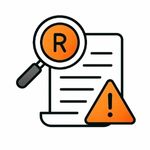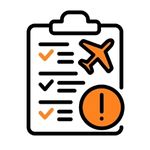
When employees in South Africa use their own vehicles for work-related travel, they may receive a travel allowance from their employer. This allowance is meant to help cover the costs of using a personal car for business purposes. However, the allowance has tax implications and must follow the rules set by the South African Revenue Service (SARS). Whether you are an employee who receives a travel allowance or an employer who provides one, understanding how SARS expects these payments to be handled can help avoid unnecessary tax problems.
Key Takeaways
- Travel Allowance Is For Business Use Only: SARS permits travel allowances exclusively for work-related journeys using a personal vehicle, excluding daily commutes between home and a regular workplace.
- Proper Records Are Essential: Employees must maintain a SARS-compliant logbook with full travel details to claim deductions or ensure allowances are not misclassified. Employers must also ensure accurate IRP5 coding.
- Two Deduction Methods Available: Employees can calculate deductions using either the Actual Cost Method, which requires detailed receipts, or the Deemed Cost Method, which uses SARS-approved per-kilometre rates. Both require accurate mileage records.
About Arcadia Finance
Secure your loan with ease through Arcadia Finance. Pay no application fees and choose from 19 reputable lenders, all fully registered with South Africa’s National Credit Regulator. Enjoy a fast, reliable process designed to match your financial needs with trusted, compliant lending options.
What Is A Travel Allowance?
A travel allowance is a sum of money paid or advanced by an employer to an employee to help cover expenses incurred while travelling for work purposes. This benefit does not apply to private journeys, including daily commuting between an employee’s home and their regular place of employment, which is not regarded as business travel.
There are two primary forms of travel allowance in South Africa:
- Fixed Travel Allowance: This is a predetermined amount provided to the employee at regular intervals, typically on a monthly basis, to assist with covering transport-related costs associated with business duties.
- Reimbursive Travel Allowance: This type is calculated based on the actual distance travelled specifically for business reasons. It is reimbursed using the official rate per kilometre as prescribed by the South African Revenue Service (SARS). For the 2025/26 tax year, the rate has been set at R4.76 per kilometre, as determined by the Minister of Finance. This figure is reviewed annually and may be adjusted.
Qualifying Conditions for a Travel Allowance
A travel allowance is granted under the following circumstances:
- Business-Related Travel: The employee must undertake travel as part of their job responsibilities. This includes visiting clients, attending meetings at different locations, or travelling between various work sites.
- Use of Personal Vehicle: The employee uses their own vehicle for the business travel.
- Exclusion of Private Travel: Travel between the employee’s home and their regular place of work is considered private and does not qualify for a travel allowance.
- Accurate Record-Keeping: The employee maintains a detailed logbook recording the dates, destinations, purpose, and kilometres of each business trip.
Need to travel for business but short on cash? A travel loan can bridge the gap while you await reimbursements or tax deductions. These loans are designed to cover flights, accommodation, and car hire, offering financial flexibility for work-related travel.

Considerations for Employers and Employees

Thorough Record Maintenance
Employees are required to keep comprehensive records of all business-related kilometres driven. Employers, on the other hand, must retain documentation of any reimbursements or allowances paid, ensuring that all records are in line with SARS compliance requirements.

Choosing Between Reimbursement And Fixed Allowance
Employers should assess the employee’s job duties and frequency of work travel before deciding whether to reimburse actual travel costs or provide a fixed travel allowance. This choice must reflect the employee’s specific travel patterns and business responsibilities.

Monitoring Annual SARS Adjustments
The official per-kilometre rate published by SARS is revised every tax year. Employers need to stay informed of these changes to ensure their travel allowance policies remain accurate and compliant.
SARS Guidelines and Compliance
Record-Keeping Requirements
To comply with SARS regulations, employees who receive a travel allowance must maintain a detailed logbook. This logbook should include:
- Dates of travel: Each entry must specify the exact date of the trip.
- Destinations: Clearly state the starting point and the destination of each journey.
- Purpose of trips: Indicate the business reason for each trip.
- Kilometres travelled: Record the distance covered for each business-related journey.
All records should be kept for a minimum of five years for SARS verification purposes. This retention period ensures that, if requested, both employers and employees can provide evidence of travel-related expenses and justifications for allowances claimed.
Prescribed Rates and Thresholds
For the 2025/2026 tax year, SARS has set the prescribed rate at R4.76 per kilometre. This rate is used to calculate reimbursive travel allowances and is subject to annual review. Employers and employees must stay informed about these annual changes to ensure accurate calculations and compliance with SARS guidelines.
IRP5 Reporting Codes
When reporting travel allowances, specific IRP5 codes must be used to categorise the type of allowance:
- Code 3701: Fixed travel allowance.
- Code 3702: Taxable reimbursive allowance exceeding the prescribed rate or combined with other compensation.
- Code 3703: Non-taxable reimbursive allowance within prescribed limits and no other compensation.
- Code 3722: Portion of reimbursive allowance exceeding the prescribed rate.
Accurate use of these codes is essential to ensure correct tax treatment and compliance with SARS reporting requirements. Employers should ensure that payroll systems are updated to reflect these codes appropriately.
For employees who travel regularly, a revolving loan might be a smarter choice than once-off credit. It gives you access to funds up to a limit, ideal for covering fluctuating travel costs without needing new approvals each time.

Common Pitfalls and How to Avoid Them
Understanding SARS requirements is key when managing travel allowances. Mistakes often lead to rejected claims, tax penalties, or incorrect PAYE deductions. Here’s how to avoid the most common problems.

Incomplete Travel Records
Many employees fail to keep a proper logbook throughout the tax year. SARS requires a logbook that records:
- Trip dates
- Start and end locations
- Purpose of the trip
- Business kilometres travelled
Without this, any tax deduction or exemption related to a travel allowance can be denied. Partial records or estimates are not accepted.
To stay compliant, maintain a logbook from 1 March to the end of February each year. Use either a manual log, spreadsheet, or SARS-compliant mobile app, and update it after each trip.

Overpaying Beyond SARS Rates
SARS sets a fixed rate per kilometre annually for reimbursive allowances. For the 2025/2026 tax year, this is R4.76 per kilometre. If employers reimburse above this rate without PAYE deductions or proper records, the excess amount is taxable.
This mistake is common when employers try to pay more generously or mix allowance types. SARS views combined reimbursements and allowances as a single total for tax purposes.
Check the SARS rate at the start of every tax year. If paying above it, ensure logbooks are up to date and PAYE is correctly handled.

Incorrect Allowance Codes
Using the wrong tax code on an IRP5 can cause SARS to treat a non-taxable allowance as fully taxable. For example:
- 3701: Fixed travel allowance
- 3703: Reimbursement within the SARS rate
- 3702 / 3722: Reimbursements above the rate or mixed payments
Incorrect coding affects employee tax returns and employer compliance. This can lead to penalties or reassessments. Employers must apply the right code depending on the payment type. Reviewing SARS updates and checking payroll settings helps avoid misclassification.
Claiming Travel Allowance Deductions
Employees in South Africa who receive a travel allowance for using their personal vehicle for work purposes may qualify to claim tax deductions. These deductions are only allowed for travel that is genuinely for business, excluding private use such as commuting between home and the regular workplace. SARS allows two methods to calculate allowable deductions: the Actual Cost Method and the Deemed Cost Method. Each method has specific requirements and depends on how detailed the employee’s records are.
Actual Cost Method
The Actual Cost Method requires the employee to maintain full records of all vehicle-related expenses throughout the tax year. This includes costs such as fuel, maintenance and repairs, insurance, licence fees, and depreciation. To calculate the deduction, the total number of kilometres travelled for business purposes must be divided by the total kilometres driven in the year. This percentage is then applied to the total costs to determine the deductible amount.
For example, if 60% of all travel during the year was for business, then 60% of the total vehicle expenses may be claimed. This method provides an accurate reflection of actual usage, but it relies on having detailed receipts and a well-maintained logbook. SARS requires that a logbook be kept from 1 March to the end of February, listing each trip with the date, destination, purpose, and kilometres travelled.
Deemed Cost Method
The Deemed Cost Method is based on a SARS-issued cost scale table and is suitable for employees who prefer not to keep receipts for all vehicle expenses. In this method, the taxpayer refers to the SARS cost table for their specific vehicle value bracket, which assigns fixed, fuel, and maintenance costs per kilometre. The business kilometres travelled are then multiplied by the total cost per kilometre from the table to calculate the deductible amount.
For example, if a vehicle falls within a category where the combined deemed cost per kilometre is R1.50 and the employee travelled 12,000 kilometres for work, the total deduction would be R18,000. While this method is simpler and does not require tracking actual spending, SARS still requires a detailed logbook to validate the number of business kilometres claimed. This ensures that even under the simplified method, only genuine business travel is used to calculate deductions.

Guidelines For Submitting Travel And Expense Claims
Follow these steps to help ensure that your travel and expense submissions to SARS are processed without unnecessary issues:
| Guideline | Details |
|---|---|
| Review Your Expense Budget And Reconcile Against Actual Spending | Start by identifying your allowable travel and entertainment budget. Once you’ve incurred expenses, such as meals, fuel, or accommodation, compare the actual amounts spent with the original allocation to ensure you remain within limits. |
| Ensure All Costs Are Strictly Business-Related | Only claim for expenses that are directly connected to your business operations. For example, travelling to a professional conference should not include unrelated detours, such as shopping stops for personal items. |
| Maintain Clear And Organised Records Of All Claims | Keep accurate documentation for each expense. This should include dated receipts, a properly completed logbook for travel, or a structured spreadsheet. Record details such as the date and time of purchase, clients visited, the business purpose of each trip, and any supporting notes. |
| Track Subsistence Details Thoroughly | When submitting subsistence claims, make sure you have a clear record of where you ate, whether the company funded the meal fully or partially, and who was present, particularly if entertaining a client was part of the reason for the meeting. |
| Understand What Is Deductible Before You Submit | Familiarise yourself with SARS guidelines to distinguish between allowable and non-allowable deductions. This can prevent penalties or rejections resulting from invalid claims. |
| Be Cautious When Claiming VAT On Certain Items | VAT deductions on entertainment expenses are not permitted under SARS regulations. However, businesses may recover VAT on certain other costs, including travel linked to business, employee meals while away on work trips, domestic flights, toll gate fees, parking charges, and internet usage where applicable. |
Conclusion
Travel allowances in South Africa provide a practical way for employees to recover costs related to business travel using their personal vehicles. However, strict SARS regulations apply, requiring both employees and employers to maintain accurate records and use the correct reporting codes. Whether using the fixed or reimbursive method, or calculating deductions through the actual or deemed cost approach, compliance with SARS rules is essential to avoid tax penalties and ensure valid claims. Keeping a detailed logbook and staying updated on SARS rates and policies is central to managing travel allowances correctly.
Frequently Asked Questions
Business travel includes any journey undertaken in the course of employment, such as visiting clients or attending off-site meetings. Daily commuting between home and your normal workplace does not qualify.
Yes, SARS requires a detailed logbook from 1 March to 28 February that records the date, destination, purpose, and kilometres of each business trip. Without this, your allowance may be fully taxable.
The prescribed rate for the 2025/2026 tax year is R4.76 per kilometre. Any reimbursement above this rate may be taxable unless proper documentation is kept.
Employers must use specific codes when reporting travel allowances. For example, code 3701 applies to fixed allowances, while 3703 covers non-taxable reimbursive payments within the SARS rate.
Yes, if the allowance is for genuine business travel and you maintain a valid logbook, you may claim tax deductions using either the Actual Cost Method or the Deemed Cost Method, depending on your record-keeping.
Fast, uncomplicated, and trustworthy loan comparisons
At Arcadia Finance, you can compare loan offers from multiple lenders with no obligation and free of charge. Get a clear overview of your options and choose the best deal for you.
Fill out our form today to easily compare interest rates from 19 banks and find the right loan for you.

